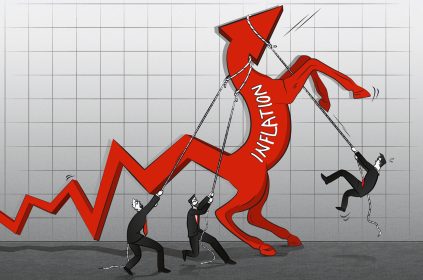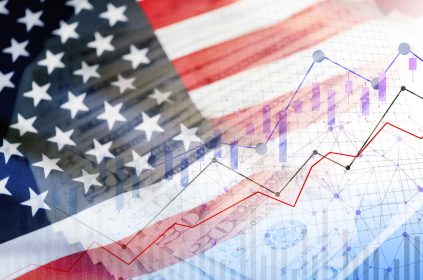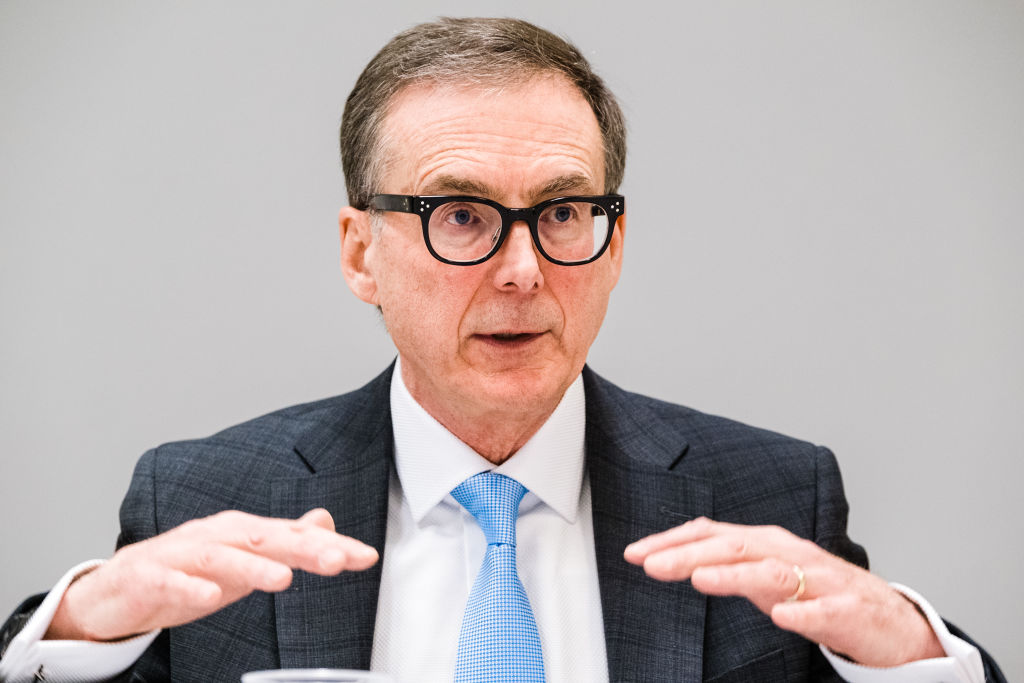Speaking to the Mississauga Board of Trade on Friday, Macklem outlined the stark economic consequences of a prolonged trade conflict, particularly if Canada retaliates with tariffs of its own.
“Increased trade friction with the United States is a new reality,” he said, cautioning that such a shock wouldn’t be temporary—it would fundamentally alter Canada’s economic trajectory.
“The economic consequences of a protracted trade conflict would be severe,” he continued. “If tariffs are long-lasting and broad-based, there won’t be a bounce-back. We may eventually regain our current rate of growth, but the level of output would be permanently lower.”
A weakened economy and higher inflation
Macklem detailed how a significant rise in tariffs would lead to an immediate decline in exports, triggering production cuts and job losses.
“Exports fall by 8.5% in the year after the tariffs take effect,” he noted, based on current Bank models, adding that business investment would also contract by nearly 12% due to higher costs and reduced confidence.
While lower export revenues would curb household income and slow consumer spending, retaliatory tariffs would also drive up prices for many imported goods.
“Roughly 13% of Canada’s CPI basket is made up of goods imported from the United States,” Macklem said, emphasizing that a weaker Canadian dollar would only compound the problem by making all imported goods more expensive.
What this means for interest rates
The Bank of Canada has been steadily cutting rates as inflation recedes, with the policy rate now well below its recent highs. However, Macklem warned that the central bank would have limited ability to shield the economy from a trade shock. While lower rates could help support domestic demand, the BoC would have to tread carefully to avoid stoking inflation.
“Monetary policy can help smooth the adjustment by supporting demand so it doesn’t weaken too much more than supply. But how much support monetary policy can provide is constrained by the need to control inflation,” he said.
“Monetary policy can help smooth the adjustment, but it cannot restore lost supply or fully offset the economic damage,” he said. “The initial impact of tariffs is a one-time rise in the level of consumer prices. Monetary policy cannot change that.”
This presents a challenge for mortgage borrowers. A weaker economy might support further rate cuts, but if inflation remains sticky due to rising import prices, the BoC could be forced to hold rates higher than expected. “Simply put, monetary policy needs to ensure the increase in inflation is temporary,” Macklem said.
A long-term shift in Canada’s economic landscape
Beyond monetary policy, Macklem stressed that Canada needs structural changes to counteract the negative effects of a trade war.
That includes reducing interprovincial trade barriers, improving labour mobility, and investing in better east-west transportation links to expand access to overseas markets.
But while those policy shifts could help in the long run, the immediate outlook remains challenging.
“A protracted trade conflict would sharply reduce exports and investment. It will cost jobs and boost inflation in the next few years and lower our standard of living in the long run,” Macklem said. “The uncertainty alone is already causing harm.”
Bank of Canada Bank of Canada Governor Tiff Macklem BoC inflation monetary policy tariffs tiff macklem Tiff Macklem speech trade war
Last modified: February 21, 2025











I totally agree that the tariff fiasco threat started by Trump will definitely make changes in Canada but what we also have to realize is that it will make very big changes in the USA. Trump’s promises of lower prices will be out the door and his drill drill drill policy won’t bring immediate results either. It would take a long time to be able to replace over 60% of their crude oil and I don’t think they have the ability to replace the hydro electric that they get from us without building more up to date nuclear reactors and for that they depend on our essential minerals. Like uranium. The world is already talking of replacing the American dollar as the base of trade snd to be truthful the USA is in a deficit with almost every country they trade with. If the world called in that debt the USA would be in real trouble. I think what Trump has done is unite Canadians against the USA. People are looking for Canadian goods in stores , selling their winter houses in the USA , snowbirds finding other warm places to go etc. the USA by mere population size has a bigger economy but they are also dependent on a lot of other places. Could Trump make the USA self sufficient ? Maybe but it would take time the aluminum and steel alone with – he says – stacked tariffs could ruin the USA car industry So yes Canada will go through real hardships but so will the USA. I think Canada is at least expecting this where a large portion of the USA still believes Canadians bot American importers will pay for these tariffs. Trump united Canada in ways nothing else in recent years has
This is such a pathetic defeatist conclusion…find solutions leaders. It’s your job